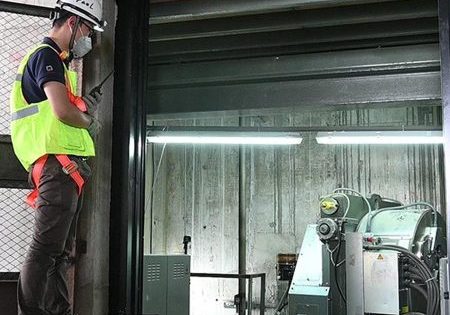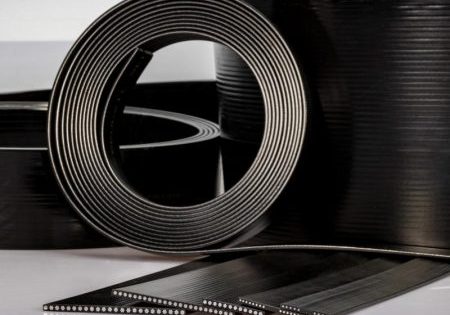Collateral warranties provided retrospectively may qualify as “construction contracts.”
The Court of Appeal in Abbey Healthcare (Mill Hill) Ltd. v. Simply Construct (UK) LLP [2022] has clarified that subject to their wording, collateral warranties may constitute construction contracts within the meaning of s104(1) of the Housing Grants, Construction and Regeneration Act 1996 (the “Act”) and so permit adjudication. This may be so even where the warranty has been provided retrospectively.
Background to the Appeal
In June 2015, Sapphire Building Services Ltd. (“Sapphire”) engaged Simply Construct (UK) LLP (“Simply Construct”) pursuant to an amended JCT Design and Build 2011 contract (the “Contract”) to construct a care home (the “Property”).
Practical completion was achieved in October 2016. A long lease was granted to Abbey Healthcare (Mill Hill) Ltd. (“Abbey”) in August 2017. Fire-safety defects (the “Defects”) were then discovered at the Property by Toppan Holdings Ltd. (“Toppan”), who by that time was the freeholder and “substitute employer” under the Contract following a novation from Sapphire in June 2017.
Simply Construct was notified of the Defects but failed to rectify them. A third party was therefore engaged to carry out the remedial works, which were eventually completed in February 2020.
While the Contract contained provisions requiring Simply Construct to provide a collateral warranty in favour of Abbey, this was not done until 23 October 2020 (the “Warranty”), by which time the works, including the third-party remedial works, had long since been completed.
Toppan and Abbey each made claims against Simply Construct for the cost of rectifying the Defects. Their respective claims were rejected, and each commenced (separate) adjudication proceedings against Simply Construct in December 2020. Both adjudications were successful, but Simply Construct failed to comply with either decision.
On enforcement of the Abbey decision (the “Decision”), the court held that the Warranty was not a “construction contract” for the purposes of the Act, meaning there was no contractual right to adjudicate by s108(5) of the Act and the implied terms of the Scheme. The adjudicator thus lacked jurisdiction in the Abbey adjudication and the Decision was unenforceable.
This case concerns Abbey’s appeal against the judgment handed down at first instance.
Court’s Decision
Appeal allowed. The Warranty, whilst retrospective in effect, was a construction contract under the Act.
Can a Collateral Warranty Be a Construction Contract Pursuant to s104(1) of the Act?
The Court confirmed that depending on its precise wording, a warranty is capable of being a construction contract under the Act.
Applying Parkwood Leisure v. Laing O’Rourke [2013] B.L.R. 589 (a case where it was decided that a warranty relating to past and future construction activities was a construction contract), the Court explained that consideration must be given to whether a warranty regulates a past and/or future state of affairs. A warranty which provides a simple fixed promise or guarantee relating to a past state of affairs may not be a contract for the “carrying out of construction operations.” Rather, it will be more akin to a product guarantee (which had indeed been the line of argument adopted by the court at first instance). A warranty that regulates ongoing construction operations, however, is more likely to fall within the meaning of the Act.
The Court also rejected Simply Construct’s argument that the words “for…construction operations” in s104(1) of the Act meant the provision was, in effect, confined to a contract “under which” construction operations were carried out. The Court preferred a broader construction, finding that the term “for” refers to the wider purpose of an agreement.
The Court reasoned that this broader construction was itself supported by the Act’s wider purpose — to improve the payment regime and dispute resolution mechanisms available in the construction industry. The Court also referred to the wording of s104(5) of the Act, which relates to hybrid contracts and is similarly formulated in broad terms.
Finally, the Court found s104(1) of the Act did not contain any provisions to suggest a “construction contract” must contain detailed remuneration obligations on the part of the beneficiary. Rather, a nominal payment provision in a warranty would satisfy s109 of the Act. This further supported the Court’s broad construction.
Interpretation of the Abbey Warranty
Under the particular Warranty in this case, Simply Construct warranted that it had “performed and will continue to perform diligently its obligations under the contract.” The Court found that whilst the Warranty governed both past and future performance, it was still a construction contract for the carrying out of construction operations within the meaning of the Act. This was despite the Warranty not containing the phrase “warrants, acknowledges and undertakes,” as was the case in Parkwood.
Did the Date of Execution of the Warranty Make Any Difference?
As a matter of statutory construction, the Court found that although the Warranty was executed four years after completion of the works and two years after discovery of the Defects, this was irrelevant owing to the Warranty’s retrospective effect. The Warranty was still an agreement for carrying out construction operations (Swansea Stadium [2018] applied).
The Court stated that any interpretation to the contrary would create uncertainty and make for “commercial absurdity” by encouraging contractors not to sign collateral warranties until after completion of their works.
Analysis
This important case adopts a more generous interpretation of the Act than previously canvassed and clarifies that, depending on their terms, collateral warranties may qualify as construction contracts notwithstanding they might only have been provided after completion of the works in question.
This will be welcome news for beneficiaries, who may find themselves able to use adjudication under the Act as a quicker means of resolving disputes. Not so much for contractors, consultants and their insurers, who will need to be astute if they are to limit their potential exposure.
This important case adopts a more generous interpretation of the Act than previously canvassed and clarifies that depending on their terms, collateral warranties may qualify as construction contracts notwithstanding they might only have been provided after completion of the works in question.
This article contains information of general interest about current legal issues but does not provide legal advice. It is prepared for the general information of our clients and other interested parties. This article should not be relied upon in any specific situation without appropriate legal advice. If you require legal advice on any of the issues raised in this article, please contact one of our specialist construction lawyers. © Hawkswell Kilvington Ltd. 2022
Get more of Elevator World. Sign up for our free e-newsletter.










